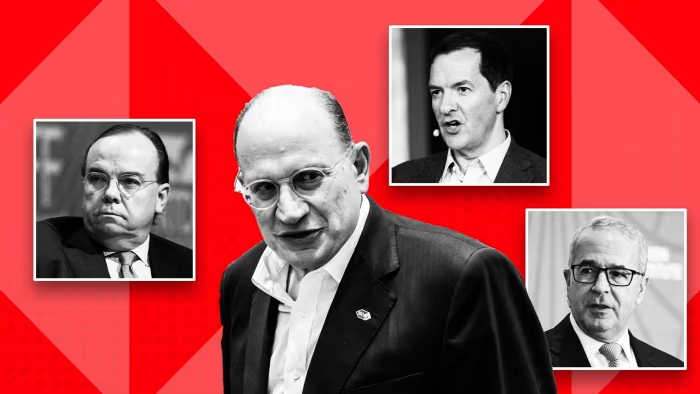Unlock the Editor’s Digest for free
Roula Khalaf, Editor of the FT, selects her favourite stories in this weekly newsletter.
HSBC’s board is at odds over who should progress as a candidate to become its next chair, as Europe’s largest lender tries to find a replacement for Mark Tucker following his surprise exit earlier this year.
The bank’s leadership is struggling to agree on whether certain candidates are qualified enough to take on one of the industry’s most challenging roles, according to people familiar with the conversations, as it returns to names that have previously been rejected or declined the job.
Board members, all of whom joined after Tucker began his tenure as chair in 2017, have differing opinions on who satisfies two crucial requirements of the role: financial services experience and in-depth knowledge of Asia.
“There is a bit of a delay in vetting the candidates,” said a person familiar with the process. “The board can’t decide whether or not to advance candidates because there are disagreements about who fits the profile,” they added.
HSBC has approached a number of candidates it previously discounted as pressure mounts on the bank to name a permanent chair, said two people familiar with the process. Among them is former UK chancellor George Osborne, who has emerged as a contender for the role after he was initially passed over by the board, according to two people familiar with the process.
The bank also renewed its approach to Goldman Sachs executive Kevin Sneader and HSBC’s former chief executive Stuart Gulliver. Naguib Kheraj, a former Barclays executive and chair of Goldman Sachs’ Petershill Partners, has also been considered for the role.
HSBC said the process to appoint a new chair continued and it would provide an update “in due course”.
Osborne had advised HSBC while a partner at boutique advisory firm Robey Warshaw, including on its £1 acquisition of Silicon Valley Bank UK, said a third person with knowledge of the matter. US investment bank Evercore agreed to buy the Mayfair firm earlier this year with Osborne continuing as a senior managing director.
The former chancellor is also among the names floated for BBC director-general as well as UK ambassador to the US. Asked by the Financial Times on Monday whether he could see himself in either of those two roles or as HSBC chair, a notoriously demanding position, Osborne said: “I have absolutely no idea, as none of those things are in my gift.”
Osborne’s statecraft, which he displayed in 2016 when as chancellor he intervened on behalf of HSBC to help the bank escape US criminal charges for money laundering, is likely to help navigate competing interests across three jurisdictions.
HSBC’s key business are in Asia and the UK but its dollar clearing licence comes from the US.
However, Osborne arguably lacks enough financial services experience to run a systemically important bank.
Gulliver, a popular figure among the bank’s top ranks, has also divided the board with some reluctant to name an insider to the role, after breaking with a 150-year old preference for internal candidates when it appointed former AIA and Prudential executive Tucker in 2017.
HSBC’s inability to find a replacement for Tucker, a hard-charging executive who resigned as chair earlier than expected, has created uncertainty for the UK’s second-largest listed company and raised eyebrows about its succession planning.
UK regulators have questioned the bank’s leadership over why it was not better prepared for Tucker’s departure and forced to take the unusual step of naming an interim chair, said two of the people.
Tucker stepped down in September to take up the chair at Asian insurer AIA Group, leaving former KPMG executive Brendan Nelson to take over as interim chair.
Those involved in the process say part of the problem is HSBC — on the basis that Tucker was expected to stay until September next year — kicked off the search too late, which left the bank with a limited pool of candidates who have the right experience and are available to take on what is in essence a full-time job.
Pay may also have deterred some potential candidates for the role, according to people familiar with the process. Tucker received £1.6mn in pay and benefits in 2024, far below what many of the candidates would receive for their current roles.
